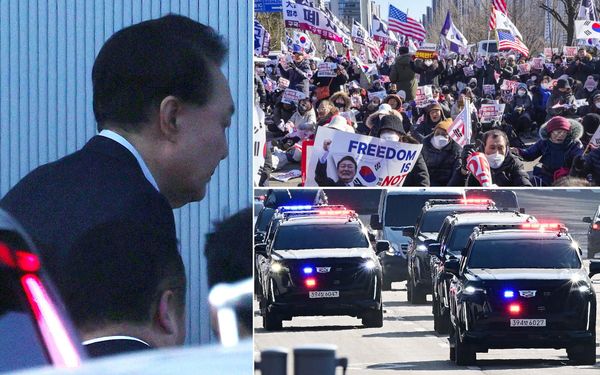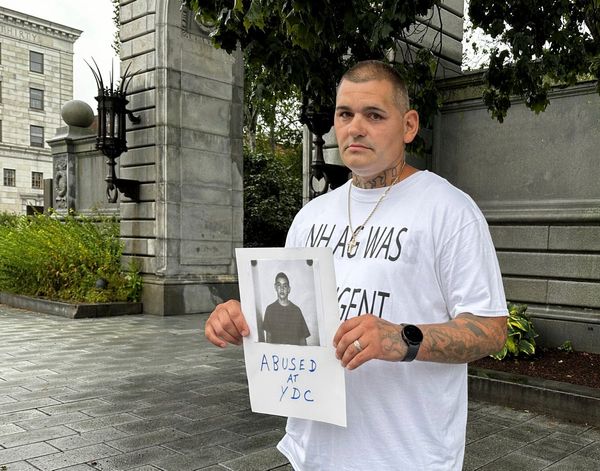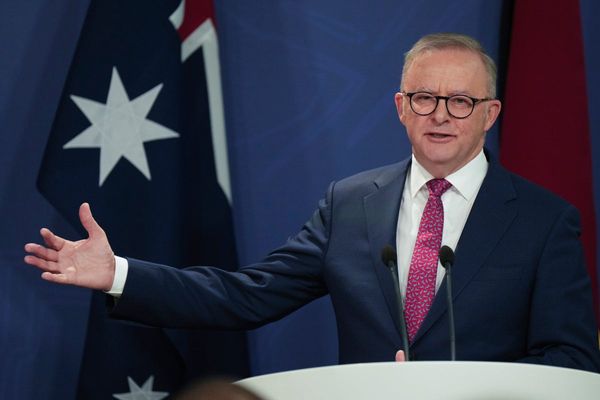
“Give us a chance” was the demand of Uncle Jack Patten in his famous speech at the first Day of Mourning protest on January 26, 1938.
Ahead of Invasion Day in 2024, the Victorian Coalition announced it had decided months ago to abandon the Treaty process. The decision was baffling, the timing of the announcement an insult, and the message loud and clear: Liberal leader John Pesutto and Nationals leader Peter Walsh are not serious about giving Aboriginal communities a voice in their own affairs.
At the core of Uncle Jack’s speech was a call for self-determination, which made the case that “it is a disgrace to Australia’s name that our people should be handicapped … and then blamed for being backward”. It is a battle our people have been fighting for 236 years.
Treaty is about ending that handicapping. Treaty is about healing the deep wounds caused by colonisation. Treaty is about allowing our people to make decisions about how we can live our best lives, not at a disadvantage to all other Victorians but as true equals that can see us walking together, finally, after two centuries of war, oppression, systematic violence and assimilation.
It is extremely frustrating that the Coalition parties, the formal opposition in Victoria, walked away from Treaty before negotiations began, without talking to Aboriginal communities about it or bothering to offer an alternative or argument that could hold water. I suppose it was the same brains trust that has guided their election strategies over the past quarter of a century and delivered just one win out of seven attempts.
The announcement has been frustrating, but as CEO of the Victorian Aboriginal Legal Service (VALS) and a metro member of the First People’s Assembly of Victoria, I still want to work with the Coalition to get the best outcomes. Treaty does not need bipartisan support, but all of Victoria would benefit from a political consensus in support of it.
More than anyone, Aboriginal people experience and understand the worst of government. That kind of insight should be invaluable to an opposition party. I am eager to share the experience of VALS, our clients and community with anyone who comes to the table in good faith and is ready to have a well-reasoned debate.
The Coalition made some vague comments about land rights when it announced it was pulling out of Treaty. I did not fully understand what it was trying to articulate, but the idea that we should have to have perfect land rights and planning legislation before progressing Treaty is disingenuous.
There may be public policy or legislative asks made as part of the Treaty negotiations — across many areas, we need to be given the chance we deserve — but the guts of Treaty is about setting up a relationship between Aboriginal people and the government, and a relationship between Aboriginal people and all Victorians. This would inevitably include land, sky and waters.
By walking away from the Treaty process, the Victorian Coalition is saying it does not want a relationship with Aboriginal people. This strikes at the heart of all the problems that have flowed from invasion and colonisation into modern Australia. Our people have gone through so much pain and suffering because of people who do not want a relationship with us — pain and suffering caused by those who don’t see that the ancient history we share with this land can only benefit those wanting to care for country, those wanting to create a world we can be proud of for future generations, those wanting to create an equal future, a future we don’t have to say sorry for.
The Victorian Coalition is hoping it can copy Opposition Leader Peter Dutton, picking what it thinks is its own political expediency over our lives. It isn’t sound judgment to believe that the referendum result will carry the Victorian Coalition to government; a constitutional referendum is ultimately very different from an election.
As a member of the First Peoples’ Assembly and Treaty co-convenor, I still want to work with all politicians to make sure Treaty has the buy-in it needs to succeed. In Canada and Aotearoa, we have seen the damage that can be done when politicians undermine treaties.
Colonisation has inflicted generational trauma and we will need generations of healing to fix that. A political consensus around supporting Treaty in Victoria would be a small but important part of the foundations that would allow for that healing.
On Invasion Day in Melbourne, we again saw a huge crowd at the annual protest. I imagine Uncle Jack would be so proud to see so many of our people out on the streets with so many supporters. A politician who sees a crowd of that size and understands the power of a movement is probably on the right side of history.
It’s okay for the opposition to put its hands up and say we made a mistake, to say it wants to be involved in the process and the negotiations when they commence — because we are serious about Closing The Gap, about caring for country, and about the future of this state.
When they’re ready, they know where to find us.







